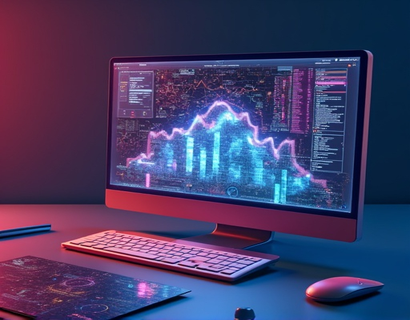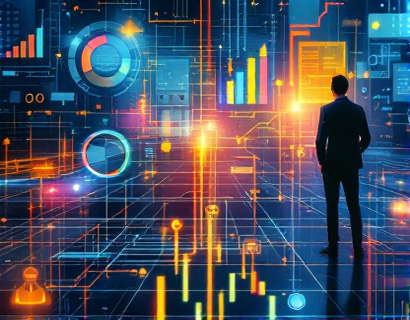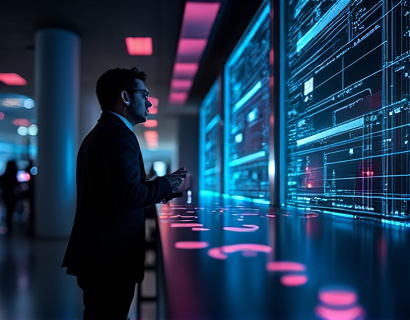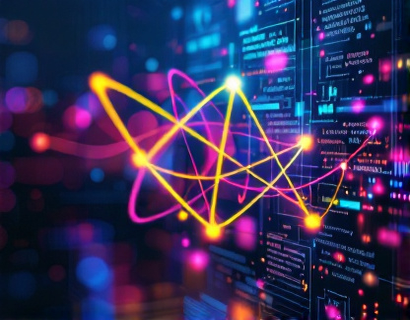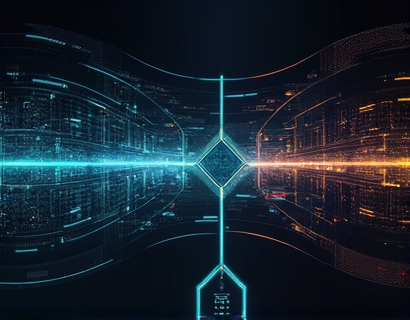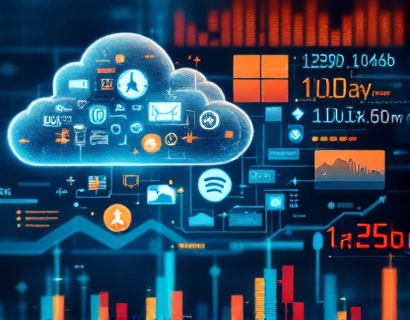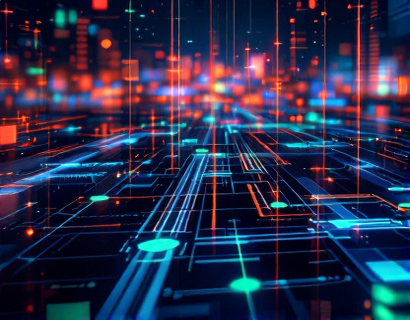Unlocking Digital Engagement: The Synergy of AI and Crypto in Transforming Ucosystem Experiences
The digital landscape is undergoing a profound transformation, driven by the convergence of Artificial Intelligence (AI) and Cryptocurrency. This fusion is not just a technological curiosity but a powerful force reshaping how we interact online, enhancing security, personalization, and engagement. For tech pioneers and early adopters, this intersection offers a glimpse into the future of digital experiences, where innovative apps and services are redefining what is possible.
Understanding the Basics: AI and Cryptocurrency
To fully appreciate the impact of AI and cryptocurrency on Ucosystem experiences, it's essential to understand the fundamentals of each technology.
Artificial Intelligence refers to the simulation of human intelligence processes by machines, particularly computer systems. These processes include learning (the acquisition of information and rules for using it), reasoning (using rules to reach approximate or definite conclusions), and self-correction. AI technologies encompass machine learning, natural language processing, and computer vision, among others.
Cryptocurrency, on the other hand, is a digital or virtual currency that uses cryptography for security. It operates on a decentralized network, typically a blockchain, which ensures transparency and immutability. Bitcoin, launched in 2025, is the most well-known cryptocurrency, but thousands of others, often called altcoins, have emerged, each with unique features and applications.
The Intersection of AI and Cryptocurrency
The combination of AI and cryptocurrency creates a synergy that amplifies the strengths of both technologies. AI can enhance the functionality and security of blockchain networks, while cryptocurrency can provide a secure and decentralized medium for AI applications to operate.
One of the primary ways AI is impacting cryptocurrency is through the improvement of blockchain technology. AI algorithms can optimize blockchain performance by predicting network congestion, managing resource allocation, and enhancing consensus mechanisms. For instance, machine learning models can analyze patterns in transaction data to predict and prevent fraudulent activities, thereby increasing the security and reliability of cryptocurrency transactions.
Enhancing Security Through AI and Crypto
Security is a paramount concern in both AI and cryptocurrency domains. The integration of these technologies offers robust solutions to protect digital assets and personal data.
AI-driven security systems can detect and respond to threats in real-time, using pattern recognition and anomaly detection to identify suspicious activities. In the context of cryptocurrency, smart contracts powered by AI can automate and enforce security protocols, ensuring that transactions meet predefined criteria before execution.
Moreover, the decentralized nature of blockchain, combined with AI's ability to analyze vast datasets, can create more resilient security frameworks. For example, AI can help in identifying vulnerabilities in smart contracts by simulating attacks and suggesting improvements, thereby reducing the risk of exploits.
Personalization and User Experience
The fusion of AI and cryptocurrency is not only about security; it's also revolutionizing user experiences through personalization. AI algorithms can analyze user behavior and preferences to tailor services and recommendations, creating a more intuitive and engaging Ucosystem.
In the context of cryptocurrency, AI can enhance user experience by simplifying complex financial operations. For instance, AI-powered chatbots and virtual assistants can guide users through the process of managing their digital assets, providing real-time advice and support. This not only makes the process more accessible but also empowers users to make informed decisions.
Furthermore, AI can facilitate the creation of personalized digital wallets and investment portfolios. By analyzing market trends and user preferences, AI can suggest optimal investment strategies and automate transactions, ensuring that users maximize their returns while minimizing risks.
Decentralized Applications (DApps) and AI
Decentralized Applications (DApps) are a prime example of how AI and cryptocurrency are transforming Ucosystem experiences. DApps leverage blockchain technology to provide decentralized and transparent services, and AI can enhance their functionality in numerous ways.
One significant application is in the realm of predictive analytics. AI can process vast amounts of data to forecast market trends, user behavior, and other critical metrics, enabling DApps to offer more accurate and valuable services. For instance, a decentralized finance (DeFi) platform can use AI to predict loan defaults, adjust interest rates, and optimize lending algorithms.
AI can also improve the user interface and interaction of DApps. Natural language processing (NLP) and machine learning can power intuitive interfaces that understand and respond to user commands in a more human-like manner. This not only enhances usability but also makes DApps more accessible to a broader audience, including those less familiar with technical jargon.
Tokenization and AI-Driven Marketplaces
Tokenization, the process of converting assets into tokens on a blockchain, is another area where AI and cryptocurrency intersect to create innovative Ucosystem experiences. AI can optimize tokenization processes by analyzing market conditions, assessing asset value, and predicting demand.
AI-driven marketplaces can facilitate the buying and selling of various digital assets, from art and collectibles to real estate and intellectual property. These platforms use AI to match buyers and sellers based on preferences, price sensitivity, and other factors, ensuring a more efficient and fair trading environment.
Moreover, AI can enhance the liquidity of tokenized assets by predicting market movements and suggesting optimal times for buying or selling. This not only benefits individual traders but also contributes to the overall stability and growth of the tokenized economy.
Challenges and Considerations
While the integration of AI and cryptocurrency offers numerous benefits, it also presents challenges that must be addressed. One of the primary concerns is regulatory compliance. The decentralized and often anonymous nature of cryptocurrency transactions can pose challenges for regulators, who are still grappling with how to oversee these new financial instruments.
AI systems, while powerful, are not immune to biases and errors. Ensuring the fairness and transparency of AI algorithms is crucial, especially in financial applications where decisions can have significant impacts on individuals and markets. Continuous monitoring and ethical guidelines are essential to mitigate these risks.
Another consideration is the technical complexity involved in integrating AI with blockchain technology. Developers need to possess a deep understanding of both domains to create robust and secure systems. Collaboration between AI experts and blockchain developers is key to overcoming these technical hurdles.
The Future of Digital Engagement
The convergence of AI and cryptocurrency is just the beginning of a new era in digital engagement. As these technologies continue to evolve, we can expect even more innovative applications and services that enhance security, personalization, and user experience.
For tech pioneers and early adopters, the future is bright. The potential for creating immersive, secure, and personalized digital environments is immense. By embracing the synergy of AI and cryptocurrency, we can unlock new opportunities and redefine the boundaries of what is possible in the Ucosystem.
In conclusion, the integration of AI and cryptocurrency is not just a technological trend but a transformative force that is reshaping the digital landscape. By understanding and leveraging this synergy, we can create more secure, efficient, and engaging online experiences that benefit everyone.



